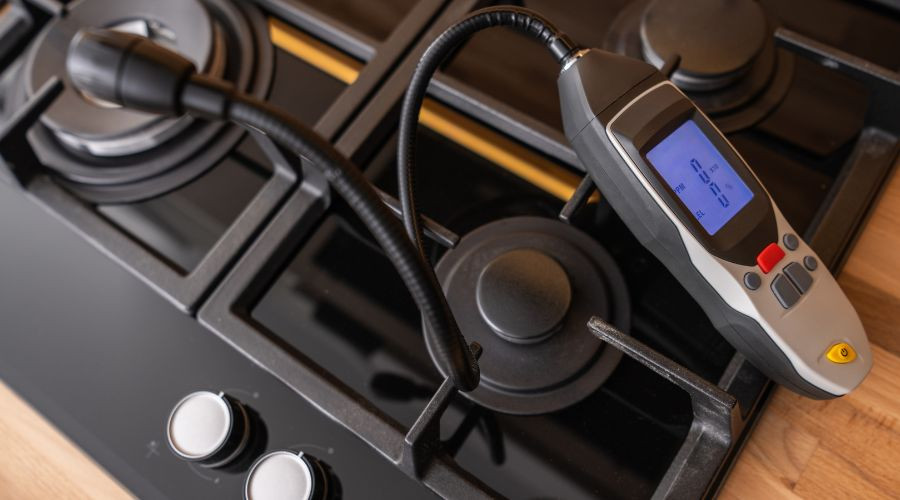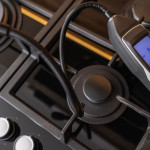Stay Safe From Dangerous Gas Leaks by Identifying Them Quickly
Identifying hazardous situations before they escalate can bring peace of mind. Understanding natural gas odors and unusual sounds offers life-saving protection. This guide provides clear, practical steps to spot leaks quickly and keep loved ones safe.
Strange Smells or Sounds
 The distinct smell of sulfur or rotten eggs is often the first warning sign of a gas leak in the home. Natural gas companies intentionally add this odorant (called mercaptan) to otherwise odorless gas to alert residents of potential danger. The smell can range from faint to overwhelming, depending on the severity of the leak. If this unmistakable odor is detected, immediate action is crucial rather than dismissing it as a passing smell.
The distinct smell of sulfur or rotten eggs is often the first warning sign of a gas leak in the home. Natural gas companies intentionally add this odorant (called mercaptan) to otherwise odorless gas to alert residents of potential danger. The smell can range from faint to overwhelming, depending on the severity of the leak. If this unmistakable odor is detected, immediate action is crucial rather than dismissing it as a passing smell.
Besides the characteristic odor, unusual sounds can indicate a gas leak emergency. Listen carefully for hissing, whistling, or roaring noises coming from gas lines or appliances. These sounds occur when pressurized gas escapes through a crack or hole in the line. The volume varies with the leak size. Unexplained sounds near gas-powered equipment warrant investigation, especially when accompanied by the telltale sulfurous odor.
The senses serve as the first line of defense against dangerous gas leaks. Environmental factors can sometimes mask these warning signs, making detection more challenging. Strong cooking odors might temporarily overpower the smell of gas, while household background noise could drown out hissing sounds. According to the Gas Safe Register, approximately 1 in 3 UK households couldn't correctly identify the smell of a gas leak, highlighting the importance of familiarizing oneself with these critical warning signals before an emergency occurs.
Higher Gas Bill
 A sudden spike in the monthly gas bill, despite normal usage patterns, is one of the most overlooked signs of a gas leak in the home. Natural gas leakage doesn't just create safety hazards—it literally costs money as the escaping fuel registers on the meter. Tracking utility expenses can save lives. Many homeowners miss this critical warning because bills are paid automatically without reviewing the details.
A sudden spike in the monthly gas bill, despite normal usage patterns, is one of the most overlooked signs of a gas leak in the home. Natural gas leakage doesn't just create safety hazards—it literally costs money as the escaping fuel registers on the meter. Tracking utility expenses can save lives. Many homeowners miss this critical warning because bills are paid automatically without reviewing the details.
Establishing a baseline for normal gas consumption is essential for spotting potential leaks early. Document monthly usage for at least three billing cycles, noting seasonal variations in heating needs. Unexplained increases might indicate an issue. Utility companies often provide year-over-year comparisons on statements, making unusual patterns easier to identify. These comparative metrics serve as valuable leak-detection tools without requiring specialized equipment.
According to the American Gas Association, households with undetected gas leaks typically experience bill increases of 10-30% before identifying the problem. This financial warning signal often precedes more obvious physical signs like sulfur odors. When noticing an unexplained rise in costs, avoid blaming the utility company for rate increases. Contact a licensed professional to conduct a thorough inspection of gas lines and appliance connections to ensure safety and restore normal billing patterns.
Physical Symptoms
A gas leak can trigger a range of concerning symptoms in both humans and pets living in the home. Natural gas exposure affects different household members in various ways, with severity depending on concentration levels and exposure duration. Children and smaller pets often show signs first due to their lower body mass.
The physical symptoms of gas exposure typically begin subtly. Household members might experience unexplained headaches, dizziness, or unusual fatigue. Nausea and breathing difficulties frequently develop as exposure continues. If a normally energetic pet becomes unusually lethargic or develops coordination problems, these behavioral changes can serve as early warning signs of gas contamination in the living environment.
Prolonged exposure to natural gas leaks poses serious health risks beyond initial symptoms. According to the American Gas Association, approximately 11% of reported residential gas leaks result in medical treatment for occupants. The toxic effects can progress to more severe respiratory issues, including potential carbon monoxide poisoning when gas combustion is incomplete. If multiple family members or pets simultaneously develop similar unexplained symptoms, especially those that improve when away from home, this pattern strongly suggests indoor air contamination from a possible gas leak, requiring immediate professional inspection.
Recognizing the physical symptoms of a gas leak quickly can save lives in the household. Natural gas exposure affects both humans and animals, often causing noticeable health issues before detection equipment sounds an alarm. The body's reaction serves as an early warning system.
Humans typically experience several telltale signs when exposed to natural gas. Eye and throat irritation often appears first, followed by persistent headaches that don't respond to pain relievers. Many victims report unusual fatigue and unexplained dizziness that worsens in certain rooms. Nausea and breathing difficulties represent more serious symptoms requiring immediate medical attention. If these symptoms improve when leaving the home but return when coming back, this pattern strongly suggests gas exposure rather than seasonal illness.
Pets can also display alarming reactions to gas leakage in the home. Dogs and cats might suddenly lose interest in food or water, showing a marked decrease in appetite. Vomiting without other explanation is another common sign of toxic gas exposure in animals. Pets may experience respiratory distress, including rapid breathing or unusual wheezing sounds. Unlike humans, animals often demonstrate behavioral changes first—becoming unusually lethargic or seeking isolation in rarely-used rooms. These warning signs in furry companions might indicate dangerous gas concentrations before detection equipment can.
About 1st American Plumbing, Heating & Air
1st American Plumbing, Heating & Air is a family-owned and operated plumbing and HVAC company serving Herriman, UT, and Salt Lake & Utah Counties. They offer emergency services, upfront pricing, and the latest technology. Call them for gas leak detection services in Herriman, UT.



